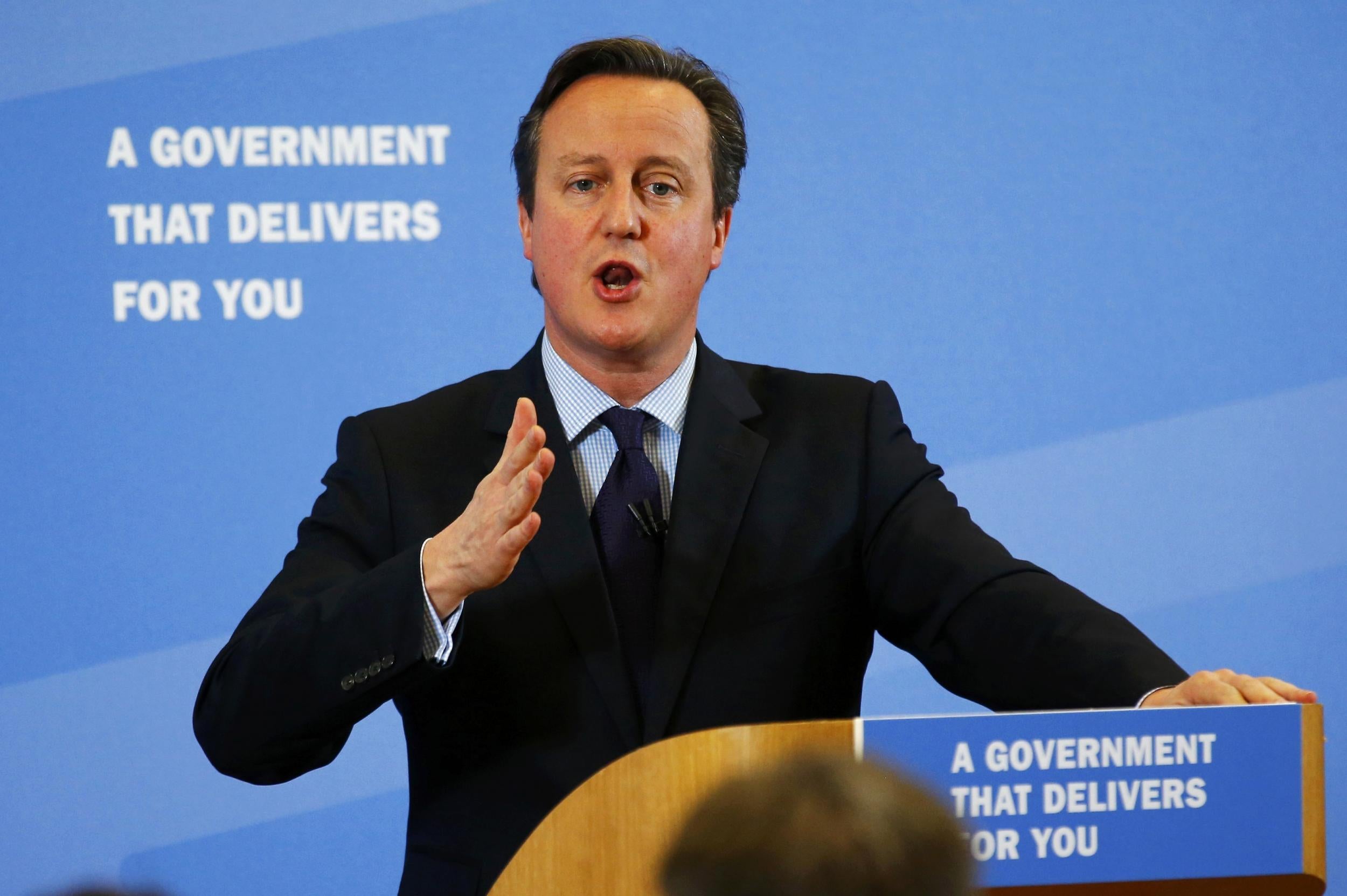David Cameron fails to convince Polish prime minister of his EU renegotiation plan
Beata Szydlo said the pair do not see 'eye to eye' on some issues

David Cameron has failed to convince his Polish counterpart of his plans to change EU rules on welfare for people who move between countries.
Beata Szydlo, the new Polish prime minister who came to power after an October election, said she did not see “eye to eye” with the UK on the issue.
Poland’s government is strongly opposed to Mr Cameron’s proposals which would lock its citizens out of claiming in-work benefits for four years if they moved to Britain.
Following talks between the two leaders in Warsaw, Ms Syzdlo said she wanted the UK to remain in the bloc, but said: “There are also discussions and issues about which we do not see eye to eye today but I believe these issues will be further discussed by us ... We will try to solve the, together in consensus."
Mr Cameron struck an unbeat tone in the press conference following the talks, telling reporters: “Even on the most difficult issue of welfare we have agreed to work together to find a solution. I believe with the type if political will I have seen here in Poland we an find a way”.
The lack of progress comes ahead of a planned referendum on whether Britain stays in the European Union. Mr Cameron had promised to renegotiate aspects of the bloc’s membership before holding the vote.
It is looking increasingly unlikely that any changes will be in place by the time a vote is held, however. Several countries have publicly voices opposition to the plans, parts of which are expected to require unanimous changes to EU treaties.

The Conservative manifesto promised to hold the plebiscite before the end of 2017, but observers currently estimate that it could come as soon as the summer of 2016.
Mr Cameron supports Britain remaining in the EU subject to his proposed changes. He last month however said he would not rule out Britain leaving the EU if his demands were not met. He has also said the EU would do "OK" outside the bloc.
There has been little public progress so far on achieving the demands, however, some of which are thought to require renegotiation of the EU’s fundamental treaties and thus the assent of all the bloc’s member state governments – many of whom have expressed public hostility to Mr Cameron’s ideas.
The PM set out four specific demands in November: protection of the single market for non-EU countries, cuts to red tape, exemption for the UK from the bloc’s constitutional drive to “ever-closer union”, and restriction to in-work migrant benefits such as tax credits.
Mr Cameron warned in a recent interview with the Spectator magazine that pressures on public opinion caused by the refugee and eurozone crisis could push the country towards the exit door of the bloc.
Labour says it will campaign to stay in the EU, though its leader Jeremy Corbyn has previously expressed doubts about the bloc’s rules and approach. The SNP has said Scotland should not be made to leave the EU with the rest of the UK, while Ukip is firmly Eurosceptic. The Liberal Democrats are strongly pro-EU membership
Join our commenting forum
Join thought-provoking conversations, follow other Independent readers and see their replies
Comments
Bookmark popover
Removed from bookmarks